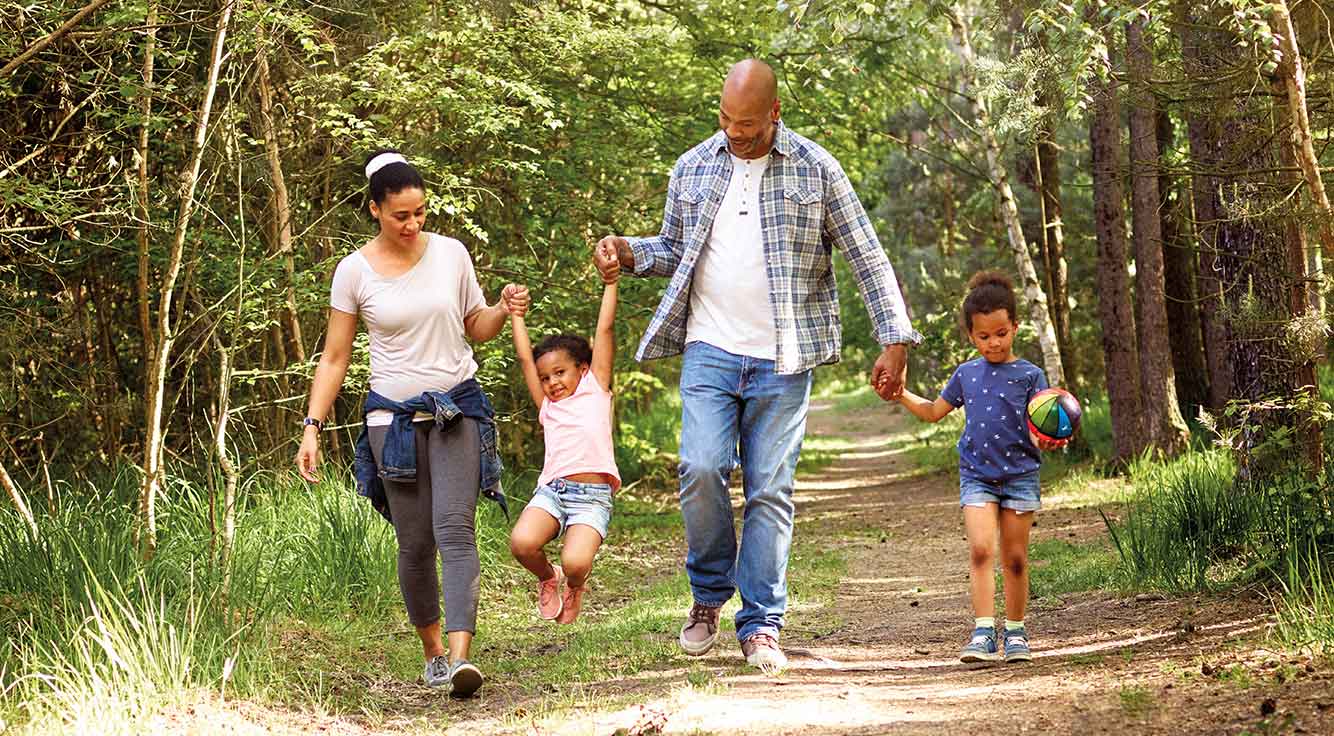
Boost your brain power with exercise
As we get older, it’s common for our memory and mental agility to get a little fuzzy. That’s because our brains actually shrink as we age. While there’s a lot of emphasis right now around online training games and apps for your brain, exercise is one of the best ways to improve your brain health.
Studies have shown that aerobic exercise — like walking, swimming, or cycling — can provide some serious brain benefits. Aerobic exercise, or “cardio,” can help slow brain aging by about 10 years.1
Cardio exercise gets your heart pumping and oxygenated blood flowing throughout your body, including your brain. “The increased blood flow to your brain can cause parts of the brain to grow, including the hippocampus, or the memory center of the brain,” says Jack Der-Sarkissian, MD, a physician in family medicine at Kaiser Permanente in Los Angeles. This means your workouts can help new brain cells grow, reversing signs of aging in the brain.2
No matter your age — or fitness level — you can up your brain power with these low-impact cardio exercises.
1. Walking
Going for a walk is a great way to flex your mental muscles. Studies show that walking — at your own pace for 40 minutes 3 times a week — can help boost the connectivity of important brain circuits that help with planning, memory, and multitasking.3
2. Dancing
Whether it’s salsa, line, or swing, dancing can help keep your mind sharp. Research shows that regular dancing can reverse the signs of aging in the brain, especially in the elderly. 4 The physical movement of dancing paired with the challenge of learning dance steps helps increase the hippocampus region of the brain.5 This part of the brain plays a key role in memory, learning, and helping you keep your balance.
3. Stair climbing
Going up and down stairs has a positive effect on your thinking skills.6 It helps improve your executive function skills, such as your ability to pay attention, organize, and achieve goals.
4. Tai chi
This graceful exercise can do wonders for your brain health. Researchers found that seniors who do tai chi several times a week have improved memory and thinking skills.7 In addition to the cognitive benefits, practicing tai chi can help reduce stress and depression.8
Cardio workouts — even low-impact ones — are a win-win for your brain and overall health. Each sweat session is like medicine for your mind, helping your memory, learning, and thinking skills.9
“Exercise has also been shown to indirectly improve both mood and sleep, both essential to good brain health,” adds Dr. Der-Sarkissian.
1J. Z. Willey et al., “Leisure-time physical activity associates with cognitive decline: The Northern Manhattan Study,” Neurology, March 23, 2016.
2Yaakov Stern et al., “Effect of aerobic exercise on cognition in younger adults: A randomized clinical trial,” Neurology, January 30, 2019.
3Michelle W. Voss et al., “Plasticity of Brain Networks in a Randomized Intervention Trial of Exercise Training in Older Adults,” Frontiers in Aging Neuroscience, August 26, 2010.
4Kathrin Rehfeld et al., “Dancing or Fitness Sport? The Effects of Two Training Programs on Hippocampal Plasticity and Balance Abilities in Healthy Seniors,” Frontiers in Human Neuroscience, June 15, 2017.
5See note 4.
6See note 2.
7James A. Mortimer et al., “Changes in Brain Volume and Cognition in a Randomized Trial of Exercise and Social Interaction in a Community-Based Sample of Non-Demented Chinese Elders,” Journal of Alzheimer’s Disease, June 2012.
8Albert S. Yeung et al., “A Pilot, Randomized Controlled Study of Tai Chi With Passive and Active Controls in the Treatment of Depressed Chinese Americans,” The Journal of Clinical Psychiatry, May 2017.
9See note 2.





